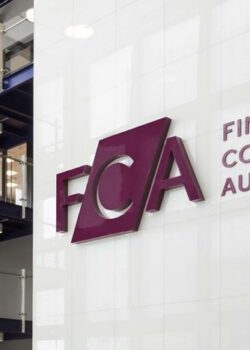Key week for ESG in New Zealand
All hail New Zealand for changes to the country’s governance code, a timely intervention that emphasises ESG.
In fact, according to some, the most important element of new provisions for kiwi companies is that they must now make non-financial disclosures at least annually using the UN’s Principles for Responsible Investment. These principles include biodiversity, water security, land degradation, labour standard, tax transparency and succession planning.
The code also asks companies to explain why “ethical standards” are important to their “purpose” and to keep executives off the remuneration committee unless there is a really compelling reason (hard to imagine what that might be).
Hell to pay?
Just in case you thought being chair of the board was a cushy number, spare a thought for Helge Lund, the chair of BP, now reportedly the subject of efforts by shareholders to oust him. The Times reports a number of big pension schemes have launched the move after pledges to reduce carbon emissions were “watered down”.
The company’s AGM is next week, but shareholders appear to be riled up not only over rewritten pledges, but also because they were not consulted. Events at BP may just put board chairs everywhere on notice that shareholders are taking climate change very seriously indeed. Could be quite the AGM season.
Brothers up in arms
Legal & General Investment Management (LGIM), one of the UK’s largest asset managers, has joined forces with another investor to challenge US energy giant Exxon over the company’s climate plans. According to the Financial Times, LGIM has, alongside the Christian Brothers Investment Services, filed a shareholder resolution calling on Exxon’s board to publish the cost of transitioning to green targets.
The FT reports: “The joint action by the top shareholders is a sign of mounting pressure on the company’s board to go further on its climate change plans.”
Given the success that the relatively small fund Engine No. 1 had at gaining Exxon board seats, Exxon managers will be feeling like it never rains. But there you go: that’s the nature of the energy business getting its head around climate change.
21 questions
KPMG’s audit work finds itself under scrutiny again. This time, inspectors at the Financial Reporting Council (FRC) have opened an investigation looking at the firm’s audit of Carr’s Group plc for the year ending 28 August 2021. Carr’s, an agricultural and engineering business, saw its results delayed for that year, after KPMG asked for more time to complete the audit.
21 more questions
And while we’re with investigations, the FRC has also launched one into EY’s audit of Made.com, the online furniture store that went into administration last year and was bought by Next. The FRC will be looking at audit work for the year to December 2021 and the probe “relates to a breach” of the fee cap requirements included in the FRC’s ethical standards.
A mighty combination
And finally, research from Japan suggests female company directors improve analysts’ forecasts, and the analysts, as a result, do better in their careers.
The findings come from Mingze Ma at Kyoto University who found that boards with three or more female directors appear to reduce “analyst forecast error”. It seems women persuade analysts to make fewer negative forecasts that follow the analyst “herd”.
Meanwhile, there is also evidence that analysts who resist the temptation of mindlessly following their colleagues seem to find promotion more often.
“Overall, I observe a win-win situation between analysts and female directors: female directors avoid pessimistic forecasts and analysts gain better career prospects. In other words, female directors dance in harmony with analysts.” Sounds like the perfect match for Strictly 2023.





